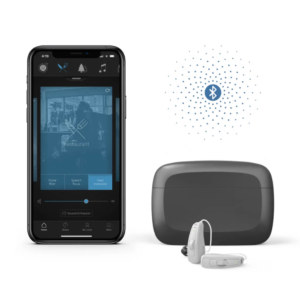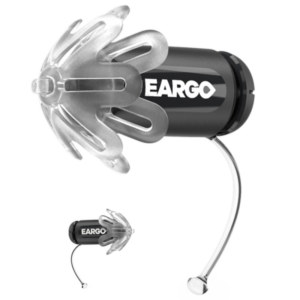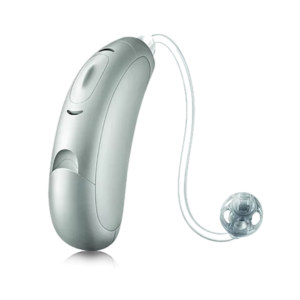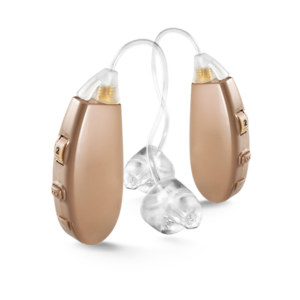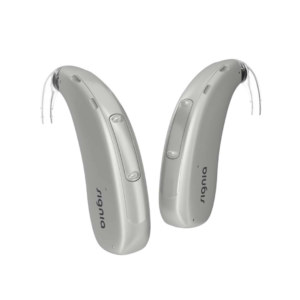5 Best Hearing Aids For Tinnitus In 2023
AgingInPlace.org keeps our resources free by working as an affiliate partner with some companies mentioned on our site. These partnerships or the commission we may earn do not affect our opinions or evaluations of the products we mention. Our reviews are solely based on our research methodology and from input from our AgingInPlace.org Advisory Board. Learn more about our ad policies.
5 Best Hearing Aids For Tinnitus In 2023
Products carousel
Tinnitus (also known as ringing in the ears) can greatly diminish quality of life. According to the American Tinnitus Association, around 50 million Americans live with this condition. The internal sounds generated by tinnitus can range from mildly disruptive to debilitating.
Hearing aids can reduce tinnitus volume and improve quality of life for those with hearing loss. In this review, we’ll discuss which hearing aids are best for tinnitus relief.
Best Hearing Aids for Tinnitus
- Best Risk-Free Trial: Jabra Enhance Select Bundle
- Best For Tinnitus with High Frequency Hearing Loss: Eargo
- Best Subscription: Audicus
- Most Affordable: MDHearing
- Best for Tinnitus Masking: Signia
Why Trust Our Expert Review?
Our experts independently research and recommend products we believe provide value in the lives of our readers. We’ve spent collectively more than 5,000 hours conducting in-depth research on hearing aids. Throughout this process, we did the following:
- Engaged in ongoing independent research
- Consulted with independent audiologists
- Consulted with geriatric care experts
- Mystery shopped the brands
- Surveyed hundreds of hearing aid users
- Tested various models of hearing aids
- Interviewed experts in the field
- Read thousands of verified customer reviews from trusted third parties such as Better Business Bureau and Trustpilot
What Should You Do First If You’re Experiencing Tinnitus?
Our medical reviewer, Dr. Hadassah Kupfer, Au.D., told us, “Anyone with tinnitus should first be evaluated by an audiologist or ENT to ensure there are no serious medical conditions associated with their tinnitus.” These conditions could include acoustic neuroma or a brain tumor.
However, tinnitus usually comes as a side effect of hearing loss. “Sometimes a professional visit will reveal a sinus problem, which is temporary and treated with medicine – no need for long-term hearing devices,” Dr. Kupfer said.
- Type of Hearing Aid: Behind-the-ear (BTE)
- Type of Hearing Loss: Mild to moderately severe
- Bluetooth Capabilities: Yes
- Battery: Battery-powered or rechargeable
- Warranty/trial period: Three-year manufacturer’s warranty that includes loss and damage protection; 100-day risk-free trial
- Financing: Monthly financing starts at $47 for battery-powered hearing aids and $65 for rechargeable. Rates range from 0 percent to 29.99 percent
Jabra Enhance Select hearing aids are sold directly to consumers online. They’re generally less expensive than many other hearing aid brands.
Jabra Enhance makes one behind-the-ear (BTE) hearing aid. They’re available as battery-powered (Jabra Enhance Select 50) or rechargeable (Jabra Enhance Select 100). These hearing aids don’t require an audiogram or in-person visit with a hearing specialist.
Jabra Enhance Hearing Test: Instead, Jabra Enhance offers a five-minute hearing aid test online that is used to customize hearing aids to your level and type of hearing loss. However, we recommend seeing a hearing professional if you’re experiencing tinnitus symptoms. An audiologist is able to rule out and correct underlying conditions (such as earwax obstruction), which might be at the root of tinnitus.
Tinnitus Manager and Sound Generator: The Jabra Enhance Select app contains a Tinnitus Manager. Tinnitus Manager works in conjunction with the Tinnitus Sound Generator, which you enable directly in your hearing aids. You connect to the app through your mobile device, and Jabra Enhance’s Tinnitus Manager contains multiple masking sounds you can choose from, including nature sounds and white noise. You can use the app to adjust pitch and variation as well as choose from various sounds.
100-day Return Policy: You have 100 days to decide if Jabra Enhance Select hearing aids are for you. If not, you can return them for a full refund, no questions asked.
Pros
-
Tinnitus Manager available in the app
-
Bluetooth-enabled for streaming music, television, and podcasts
-
Unlimited video chats with a licensed hearing specialist
-
Monthly financing available
Cons
-
Not for severe or profound hearing loss
-
Only receiver-in-canal (RIC) hearing aid type
-
Online training is required
See our full Jabra Enhance Select Hearing Aids Review.
Best For Tinnitus With High Frequency Hearing Loss: Eargo

$1,450-$2,950 per pair
- Type of Hearing Aid: Completely-in-canal (CIC)
- Type of Hearing Loss: Mild to moderate hearing loss in the high frequency range
- Bluetooth Capabilities: Three out of four models have Bluetooth capabilities
- Battery: Rechargeable
- Warranty/trial period: Offers a one- or two-year manufacturer’s warranty that covers unlimited repairs and one-time loss or damage protection per hearing aid; 45-day risk-free trial
- Financing: Options are available for one-, two-, or three-year financing. Monthly payments start at $70. Rates range from 8 percent to 17.9 percent
Eargo manufactures four completely-in-canal (CIC) hearing aids. They are:
- Eargo 7
- Eargo 6
- Eargo 5
Each Eargo hearing aid corrects mild to moderate hearing loss in the high frequency range. According to the American Hearing Research Foundation, tinnitus is often associated with damage to high frequency hearing. This type of hearing loss can be caused by exposure to loud or prolonged noise.
High-Frequency Amplification for Tinnitus: Eargo hearing aids don’t have a tinnitus masking feature. They correct for tinnitus by amplifying and restoring external sounds in the high frequency range (these include bird song and the ‘s’ sound in sun). When you have hearing loss, the lack of external sound that enters the ear allows internal tinnitus sounds to become more prominent. When hearing is restored, tinnitus noise recedes.
Pros
-
Nearly invisible
-
Comfortable to wear
-
Remote adjustments and fine-tuning
Cons
-
No tinnitus-masking
-
No Bluetooth streaming
-
Daily cleaning needed for optimal performance
See our full Eargo Hearing Aid Review.
Best Subscription: Audicus
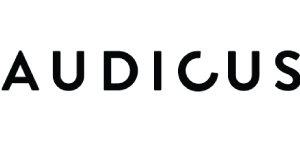
$1,398-$2,998 per pair or $39 a month via subscription
- Type of Hearing Aid: Receiver-in-ear (RIE), behind-the-ear (BTE), completely-in-canal (CIC)
- Type of Hearing Loss: Mild to severe
- Bluetooth Capabilities: Yes for the Wave and Spirit models
- Battery: Rechargeable and battery-powered
- Warranty/trial period: One-year warranty; 45-day money-back trial
- Financing: Six-, 12-, and 18-month payment plans are available, starting at $37 a month
Audicus manufactures five hearing aid models:
- Mini
- Wave
- Spirit
- Omni
Audicus hearing aids are customizable. They are available online or through in-person clinics in Denver, Chicago, and New York.
You can purchase Audicus hearing aids outright, or pay a monthly subscription fee starting at $39. Subscriptions come with a replacement pair every three months.
Tinnitus Sound Therapy: The Clara, Wave, and Dia II can be programmed with a tinnitus masker of your choice. Tinnitus masking is known as sound therapy. Tinnitus maskers emit controllable, low-level sounds that distract you from tinnitus sounds you can’t control. Tinnitus masking sounds range from white noise to nature sounds.
Tinnitus Alleviation Playlist: Audicus has compiled a tinnitus alleviation playlist that you can access here. The playlist includes waves, white noise, rain, crickets, and more.
Pros
-
High consumer ratings
-
Bluetooth connectivity
-
Affordable maintenance plan
Cons
-
Need to send hearing aids off for repairs
-
Accessories are not covered by warranty
See our full Audicus Hearing Aid Review.
- Type of Hearing Aid: Behind-the-ear (BTE)
- Type of Hearing Loss: Mild to moderately severe
- Bluetooth Capabilities: Yes, the Core model only
- Battery: Rechargeable and battery-powered options are available
- Warranty/trial period: 90-day warranty and 45-day risk-free trial
- Financing: 12-month financing with $0 down and 0 percent APR available
MDHearing is an online, direct-to-consumer hearing aid brand. They manufacture three BTE hearing aid models:
- Neo
- Air
- Volt
- Volt Max
Each hearing aid can be purchased individually or as a pair. Since tinnitus can occur in one ear or both, these hearing aids may be a cost-effective solution for you. However, if you have any degree of hearing loss, you’ll most likely get more tinnitus relief from wearing two hearing aids.
Tinnitus Benefits with Digital Hearing Aids: MDHearing offers digital hearing aids. Unlike analog hearing aids, they use digital sound processing to convert sound waves into digital signals. According to the manufacturer, the quieter circuit in digital aids is more beneficial for people with tinnitus than analog hearing aids.
Customization Limitations: MDHearing devices can’t be customized. They all provide feedback cancellation and four environmental setting options. These hearing aids reduce tinnitus sound by amplifying external sounds such as conversations, music, and nature sounds.
Pros
-
An on-staff audiologist to answer email questions
-
One of the most affordable brands for non-customized hearing aids
Cons
-
Not custom hearing aids: they’re not customized to fit your ear or adjusted to your specific degree of hearing loss
-
May not be best for those with severe or profound hearing loss
See our full MDHearing Review.
- Type of Hearing Aid: Receiver-in-canal (RIC), behind-the-ear (BTE), in-the-ear (ITE), in-the-canal (ITC), invisible-in-canal (IIC), completely-in-canal (CIC)
- Type of Hearing Loss: Mild to severe
- Bluetooth Capabilities: Yes, in some models
- Battery: Rechargeable and battery-powered
- Warranty/trial period: One-year warranty, trial periods vary by seller
Signia manufactures an extensive range of hearing aids. They include:
- Insio Charge&Go AX
- Motion Charge&Go X
- Pure
- Signia Active Pro
- Styletto X
- Silk X
Signia hearing aids require an in-person appointment with a hearing specialist, such as an audiologist.
Tinnitus Noiser: Each hearing aid has a tinnitus “noiser” function that generates masking sounds, such as gentle static noise and ocean waves. These therapy signals can be customized to fit your specific needs and comfort level. These therapy signals can be highly customized, based on your hearing test results, to give the most relief from your particular tinnitus.
Tinnitus Notch Therapy: Signia hearing aids also have built-in Tinnitus Notch Therapy. According to the manufacturer, Notch Therapy works by identifying the frequency of the user’s tinnitus and by fading the sound into the background slowly, over time. This retrains the brain and teaches it to no longer perceive tinnitus sounds.
Pros
-
Notch Therapy helps fade tinnitus effects over time
-
Tinnitus noiser functionality
Cons
-
Must purchase in-person with a hearing professional
-
Mixed reviews on Signia’s customer service support
See our full Signia Hearing Aid Review.
Comparison Table of All Providers
| FEATURES | JABRA ENHANCE | EARGO | MD HEARING AID | AUDICUS | SIGNIA |
|---|---|---|---|---|---|
| Starting Price (Per Pair) | $1,195 | $1,450 | $299 | $1,398 | $2,898 |
| Hearing Loss | Mild to moderately severe | Mild to moderate in high-frequency range | Mild to moderately severe | Mild to moderately severe | Mild to severe |
| Hearing Aid Type | BTE | CIC | BTE | RIE, BTE, CIC | RIC, BTE, ITE, ITC, IIC, CIC |
| Tinnitus Strategy | Amplification, masking | Amplification | Amplification | Amplification, masking | Amplification, masking, Tinnitus Notch Therapy |
| Yes | Yes, some models | Yes, some models | Yes, some models | Yes, some models | |
| Battery | Rechargeable and disposable | Rechargeable | Rechargeable and disposable | Rechargeable and disposable | Rechargeable and disposable |
| Telecoil | No | Yes | Yes, some models | Yes, most models | Yes, some models |
| Warranty | 3 years | 2 years | 90 days | 1 year | 1 year |
| Trial Period | 100 days | 45 days | 45 days | 45 days | Varies by seller |
| Financing | Yes | Yes | Yes | Yes | No |
| FEATURES | ||||||||||||||||||||||||||||||||||||||||||||||||||||||||||||||||||||||||||||||||||||||||||||||||||||||||||||||||||||||||
| Starting Price (Per Pair) | JABRA ENHANCE | $1,195 | EARGO | $1,450 | MD HEARING AID | $299 | AUDICUS | $1,398 | SIGNIA | $2,898 |
|---|
| Hearing Loss | JABRA ENHANCE | Mild to moderately severe | EARGO | Mild to moderate in high-frequency range | MD HEARING AID | Mild to moderately severe | AUDICUS | Mild to moderately severe | SIGNIA | Mild to severe |
|---|
| Hearing Aid Type | JABRA ENHANCE | BTE | EARGO | CIC | MD HEARING AID | BTE | AUDICUS | RIE, BTE, CIC | SIGNIA | RIC, BTE, ITE, ITC, IIC, CIC |
|---|
| Tinnitus Strategy | JABRA ENHANCE | Amplification, masking | EARGO | Amplification | MD HEARING AID | Amplification | AUDICUS | Amplification, masking | SIGNIA | Amplification, masking, Tinnitus Notch Therapy |
|---|
| JABRA ENHANCE | Yes | EARGO | Yes, some models | MD HEARING AID | Yes, some models | AUDICUS | Yes, some models | SIGNIA | Yes, some models |
|---|
| Battery | JABRA ENHANCE | Rechargeable and disposable | EARGO | Rechargeable | MD HEARING AID | Rechargeable and disposable | AUDICUS | Rechargeable and disposable | SIGNIA | Rechargeable and disposable |
|---|
| Telecoil | JABRA ENHANCE | No | EARGO | Yes | MD HEARING AID | Yes, some models | AUDICUS | Yes, most models | SIGNIA | Yes, some models |
|---|
| Warranty | JABRA ENHANCE | 3 years | EARGO | 2 years | MD HEARING AID | 90 days | AUDICUS | 1 year | SIGNIA | 1 year |
|---|
| Trial Period | JABRA ENHANCE | 100 days | EARGO | 45 days | MD HEARING AID | 45 days | AUDICUS | 45 days | SIGNIA | Varies by seller |
|---|
| Financing | JABRA ENHANCE | Yes | EARGO | Yes | MD HEARING AID | Yes | AUDICUS | Yes | SIGNIA | No |
|---|
What Is Tinnitus?
Tinnitus is when an individual hears sounds that have no external source. It’s sometimes referred to as ringing in the ears, although tinnitus sounds can vary. These sounds are caused by damage to the small hair cells in the inner ear.
Tinnitus Symptoms and Causes
People with tinnitus may hear a wide range of noises, including:
- Ringing
- Buzzing
- Roaring
- Clicking
- Whistling
Age-related hearing loss or exposure to loud noises—either one time or continuous exposure—are two of the most common causes of tinnitus.
Tinnitus can affect one or both ears, and it’s usually a sign of hearing loss – which may range from slight to severe. Other causes of tinnitus may include:
- The middle ear bone stiffening
- Ear or sinus infections
- Excessive earwax
- Diabetes
- Thyroid issues
- Lupus
- Rheumatoid arthritis
- Meniere’s disease
- Temporomandibular joint (TMJ) issues
Tinnitus is a phenomenon that is produced by the brain, and usually has no cure. “People can have tinnitus with normal hearing or with lots of hearing loss. When there is hearing loss, the brain fills in the gap with sounds that only you can hear.” says Joshua Sappington, M.D., an otolaryngologist based in St. Louis.
Can Hearing Aids Help Tinnitus?
According to hear.com lead audiologist Dr. Hope Lanter, 60 percent of people with tinnitus get relief from wearing hearing aids. “Tinnitus affects about 15 percent of the world’s population, and more than half also experience some degree of hearing loss. The brain is used to hearing a certain amount of sound, and because hearing loss reduces the amount of sound received, the brain tries to replicate the missing sound by using its internal amplifier. This causes ringing or buzzing. While there is no cure for this condition, hearing aids can be a great resource to reintroduce sounds you’re having trouble hearing. They also help restore the brain’s ability to process certain sounds and frequencies, which helps it shut off its internal amplifier,” she explains.
According to Dr. Sappington, hearing aids can help reduce tinnitus sounds by restoring hearing and by tinnitus masking.
Hearing aids that use tinnitus maskers are essentially retraining the brain to better identify sounds you want to hear. This enables you to focus on external sounds (like conversations) while ignoring tinnitus sounds.
People with tinnitus often report that their symptoms become more pronounced during periods of stress. In many instances, the best hearing aids for tinnitus management will be recommended as part of a multipronged, therapeutic approach. Cognitive behavioral therapy, meditation, breathing exercises, de-stressing activities, and medications for anxiety or depression are often effectively used to combat tinnitus.
What You Need to Know Before Buying a Hearing Aid for Tinnitus
Before you buy hearing aids for tinnitus, it’s important to find out if there is a root cause for your condition. Since some drugs cause tinnitus as a side effect, changing prescriptions may be all that is needed.
Every hearing aid for tinnitus works by amplifying external sound. Others also include additional technologies, such as masking. Before you buy hearing aids for tinnitus, try out masking apps or videos for a period of several weeks (many of these are free). This will help you determine if masking will work for you.
Masking apps don’t correct hearing loss and won’t be enough to combat tinnitus that accompanies hearing loss, but it can give you some temporary relief during tinnitus flare-ups. Wearing hearing aids will be more practical for incorporating sound therapy into your daily life.
Only buy hearing aids that come with a risk-free trial as alleviating tinnitus takes time. Give yourself at least a month to determine if your hearing aids are the right ones for you. Also, since hearing aids for tinnitus require more specialized adjustments, consider visiting an in-person professional for the most effective results.
How Much Do Hearing Aids for Tinnitus Cost?
There are expensive and budget-priced hearing aids for tinnitus. The FDA regulates hearing aids as medical devices, and those are typically more expensive than over-the-counter options such as PSAPs (personal sound amplification products). Whereas PSAPs amplify all sounds, hearing aids only amplify the frequencies you have trouble hearing. This makes them much more beneficial for tinnitus as they target the frequencies at the root of the tinnitus, even if they are also more expensive.
How Can I Save Money on Hearing Aids for Tinnitus?
In addition to flexible payment plans, there are other strategies for saving money on hearing aids for tinnitus.
Some online retailers, such as Zip Hearing, often offer significant discounts on hearing aids, with local, in-person services included.
You can also use your Health Savings Account or Flexible Spending Account to purchase hearing aids.
Don’t assume that your health insurance covers the cost of hearing aids. Unless it’s indicated in your policy, they may not include this coverage, so always check to be sure. If you belong to a labor union, check with them as well as they commonly offer stipends to cover the gap in hearing aid coverage.
Original Medicare (Part A and Part B) doesn’t cover the cost of hearing aids. However, if you have a Medicare Advantage (Part C) plan, it may cover audiological services including the full or partial cost of hearing aids.
Medicaid covers the cost of hearing aids for children, but since Medicaid benefits vary by state, many (but not all) states offer hearing aid coverage for adults.
Buying Hearing Aids for Tinnitus In-person vs Online
Having options is a wonderful thing. Some people prefer in-person appointments and others prefer working with a hearing team remotely.
Buying hearing aids online is often less expensive and more convenient than buying them through a hearing clinic.
However, for people with tinnitus, seeing a specialist in person for a diagnostic exam is usually a good first step. Online hearing tests are not able to diagnose tinnitus or the frequency that might be affecting you. This information can help you choose the best hearing aids for your condition, saving you time and money in the long run. Ask your local audiologist if they offer virtual options for follow up once you’ve seen them in person.
How to Find the Best Fitting Hearing Aid for Tinnitus
Even a great hearing aid won’t work as well if it doesn’t fit correctly. In addition to assessing your level of hearing loss and tinnitus discomfort, a hearing aid professional can fit and adjust your hearing aids so that they work optimally. They will also teach you how to put on your devices correctly so all the beneficial sound stays inside your ears.
An in-person appointment will also enable you to try on every type of hearing aid, so you can better determine which type is most comfortable for you.
Other Important Factors to Consider
When purchasing hearing aids for tinnitus, factors to keep in mind include:
- How invisible you want your hearing aids to be
- The level of technology you’re comfortable with
- Whether you prefer a rechargeable hearing aid model or disposable batteries
- Your budget
- The warranty and risk-free trial that come with your hearing aids
- Whether or not you want to use your hearing aids to stream media, phone calls, and emails
How We Made Our Picks
We determined our top picks based on the following criteria:
- Price
- Audiologist care
- Warranty
- Customer service
- Features such as Bluetooth capability and rechargeable batteries
- Comfort and fit
- Reliability
Bottom Line
Tinnitus is a common condition that often accompanies hearing loss. Hearing aids can significantly reduce the impact of tinnitus.
The hearing aids on this list were chosen because they provide a variety of tinnitus-minimizing strategies, at varying price points. The cost of hearing aids should never be a barrier to tinnitus relief or hearing loss improvement. For that reason, we included several budget-friendly options.
Direct-to-consumer online hearing aids have eliminated barriers to care that include cost, lack of access to professionals, and self-imposed (or socially imposed) stigma about wearing hearing aids. However, for people with tinnitus, seeing a hearing professional in person may have overriding benefits. These include receiving a full, diagnostic exam and getting a fitting. Seeing a professional in person may also encourage you to seek additional care for the anxiety and isolation you may feel because of your condition. No matter what strategy works best for you, don’t wait. Hearing aids can change more than just your hearing; if you have tinnitus, they can also change your life.
Frequently Asked Questions
-
There is no one-size-fits-all hearing aid for tinnitus. Many hearing aid brands can be highly effective for reducing tinnitus sounds.
-
Hearing aids are not a cure for tinnitus. However, they are beneficial for restoring hearing quality and reducing the level and distress from tinnitus sounds
-
Some hearing aid users report complete or near-complete cessation of tinnitus from hearing aid use. Others report less dramatic results. The full benefits may take some time to occur.
-
Occasionally, hearing aids may worsen tinnitus, but this is usually not the case. If online hearing aids are worsening your tinnitus, check with an in-person specialist to ensure your self-selected technology is appropriate for you. They may be too loud and aggravating your hearing loss.
Other Hearing Aids Guides
- Top Hearing Aids
- Best Small Hearing Aids
- Best Invisible Hearing Aids
- Best Over-The-Counter Hearing Aids
- Best Hearing Aids for Tinnitus
- In-The-Ear Hearing Aids Review
- Best Rechargeable Hearing Aids
- Best Bluetooth Hearing Aids
- Best Cheap Hearing Aids
- Best TV Listening Aids for The Hearing Impaired
- Best Hearing Amplifiers
Learn More About Hearing Aids
WRITTEN BY
Corey Whelan is a writer, health care professional, and Brooklyn, New York native. She is a reproductive health advocate who has helped countless patients through the trials and triumphs of infertility and adoption over the past 25 years. Corey's passion is sharing her knowledge of health and wellness through her writing, and no topic is off limits. She's mom to two grown children and two rescue dogs who captured her heart.
View AuthorMEDICALLY REVIEWED BY
Dr. Kupfer is an Audiologist and Hearing Aid Specialist in NYC, where she works with adults and older adults daily. In addition to diagnosing hearing loss, tinnitus and fitting cutting-edge hearing aids in her private practice, she serves as adjunct clinical faculty for the CUNY Audiology Doctoral Program.
View Reviewer- Ciminelli, P., et al. Tinnitus: the sound of stress? (2018).
- Del Bo, L., et al. Hearing aids for the treatment of tinnitus. (2007).
- Fernandez, M.M., et al. Interventions for tinnitus in adults: an overview of systematic reviews. (2017).
- Hearing aids. (n.d.)
- Hobson, J., et al. Sound therapy (masking) in the management of tinnitus in adults. (2010).
- Mayo Clinic Staff. Tinnitus. (2021).
- Powers, L., dos Santos, G.M., & Jons, C. (2016, September). Notch Therapy: A new approach to tinnitus treatment. AudiologyOnline, Article 18365
- Riley J., MD HearingAid support staff. Chat interview. November 19, 2021.
- Robert, Audicus support staff. Chat interview. November 19, 2021
- Sappington, J. Telephone interview.
- The audiogram. (n.d.).
- Tinnitus. (n.d.).
- Tinnitus. (n.d.).
Do you want to cite this page? Use our ready-made cite template.

